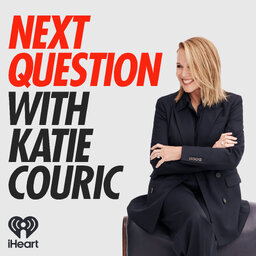There might not be singing, dancing, or mutants in Hugh Jackman’s latest movie, but it’s a big hit with Katie and Brian. Hugh stars as Gary Hart in “The Front Runner,” about the Democratic senator from Colorado who seemed destined to become his party’s presidential nominee in 1988. But an alleged extramarital dalliance — and the media’s newfound interest in a candidate’s personal affairs — led to Hart’s downfall and changed political journalism forever. Hugh talks with Katie and Brian about the movie, and joining the conversation are Matt Bai and Jay Carson, who co-wrote the screenplay.
Learn more about your ad-choices at https://www.iheartpodcastnetwork.com
 Next Question with Katie Couric
Next Question with Katie Couric


